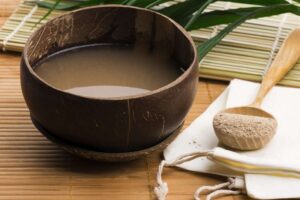
Imagine waking up every morning with a radiant, healthy complexion. No tightness, dryness, or unwanted shine – just pure, balanced, beautiful skin. Achieving this dream starts with the most fundamental step in any skincare routine: choosing the best cleanser for your unique skin type.
But with aisles overflowing with countless options, each promising the “miracle cure” for your specific concerns, how do you navigate this confusing world and find the perfect cleanser? Fear not, skincare-savvy seekers! This guide will equip you with the knowledge to confidently choose a cleanser that washes away not just dirt and makeup but also your worries about achieving a healthy, glowing visage.
Understanding Your Skin Type: The Key to Cleanser Success
Before diving into the world of cleansers, it’s crucial to understand your skin type. This foundational step ensures you choose a formula that complements your skin’s unique needs instead of exacerbating existing concerns. Here’s a breakdown of the main skin types:
- Oily Skin: Characterised by excess sebum production, leading to a shiny, greasy appearance and potential breakouts.
- Dry Skin: Lacks moisture, often feeling tight, flaky, and prone to irritation.
- Combination Skin: A blend of oily and dry zones, typically with an oily T-zone (forehead, nose, chin) and drier cheeks.
- Sensitive Skin: Easily reacts to harsh ingredients or fragrances and is prone to redness, stinging, and irritation.
Matching Your Cleanser to Your Skin’s Needs
Now that you know your skin type, let’s explore the different cleanser categories and how they cater to specific needs:
1. Gel Cleansers: Lightweight and refreshing, gel cleansers are ideal for oily and acne-prone skin. They effectively remove excess oil and impurities without stripping moisture, keeping your skin clean and balanced. Look for formulas with ingredients like salicylic acid for gentle exfoliation or benzoyl peroxide for targeted acne treatment.
2. Cream Cleansers: Rich and nourishing, cream cleansers are a godsend for dry and sensitive skin. They gently remove dirt and makeup while infusing your skin with hydrating ingredients like hyaluronic acid and ceramides. Opt for fragrance-free formulas to minimise irritation.
3. Micellar Water: This gentle, no-rinse option is a favourite for susceptible skin types. Micelles act like tiny magnets, attracting dirt and makeup without harsh scrubbing. Look for formulas specifically designed for your skin type for optimal results.
4. Oil Cleansers: Contrary to popular belief, oil cleansers are not just for oily skin! They are excellent for all skin types, including dehydrated skin. They dissolve makeup and impurities while replenishing lost moisture, leaving your skin soft and supple. Choose lightweight oils like jojoba or grapeseed for all skin types and heavier oils like argan or olive for dry skin.
Beyond Skin Type: Addressing Specific Concerns
While your skin type is a crucial factor, consider any specific concerns you may have:
- Acne: Look for cleansers with salicylic acid, benzoyl peroxide, or glycolic acid for gentle exfoliation and pore-clearing action.
- Enlarged Pores: Opt for cleansers with witch hazel or niacinamide to help minimize the appearance of pores.
- Hyperpigmentation: Choose cleansers with brightening ingredients like vitamin C, kojic acid, or licorice root extract.
- Anti-Aging: Look for formulas with antioxidants like vitamin E and green tea extract to combat free radical damage and promote collagen production.
Remember
- Patch test: Before applying any new cleanser to your entire face, patch test a small area behind your ear to check for allergic reactions.
- Listen to your skin: Pay attention to how your skin feels after using a cleanser. If it feels tight, dry, or irritated, it’s not the right fit.
- Double cleanse: For oily or combination skin, consider double cleansing. Start with an oil cleanser to remove makeup and sunscreen, followed by a water-based cleanser to remove impurities.
- Consult a dermatologist: If you have any underlying skin conditions or concerns, consult a dermatologist for personalised guidance.

